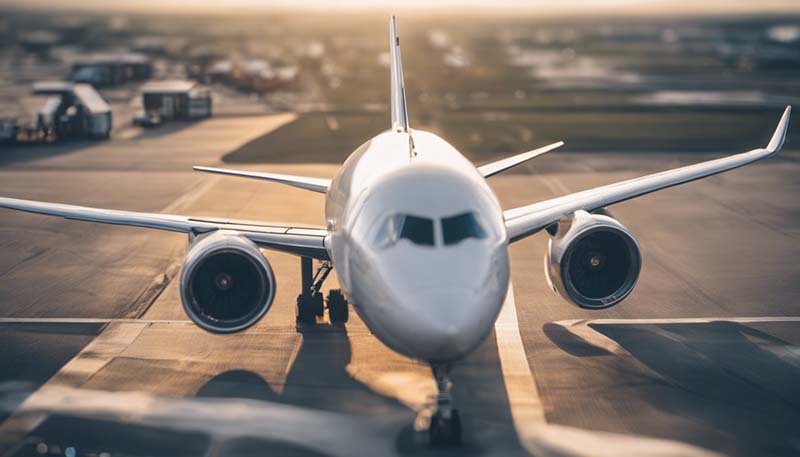The aviation industry has been a driving force for economic growth and development both on a national and global scale. This article aims to explore the various ways in which the aviation sector contributes to the economy, the challenges it faces, and the potential for future growth and innovation.
Introduction
The aviation industry, encompassing air travel and related services, has become an integral part of modern society. It connects people, businesses, and countries, facilitating the exchange of goods, services, and ideas. As a result, the economic impact of aviation is significant and far-reaching, influencing various aspects of the economy, including trade, tourism, employment, and infrastructure development.
Economic Contributions of Aviation
Trade and Commerce
The aviation industry plays a crucial role in facilitating international trade by providing fast and efficient transportation for goods and services. Air cargo accounts for a significant portion of global trade by value, with approximately 35% of all goods traded by air. This enables businesses to access new markets, reduce transportation time, and respond quickly to changes in demand, ultimately contributing to economic growth and development.
Advertisement
Tourism
The aviation sector is a major driver of the tourism industry, as it allows people to travel to destinations around the world with ease and convenience. According to the World Travel & Tourism Council (WTTC), the tourism industry contributes around 10% to the global GDP and supports over 320 million jobs. The accessibility and affordability of air travel have made it possible for millions of people to explore new destinations, boosting local economies and creating job opportunities in the tourism and hospitality sectors.
Employment
The aviation industry is a significant employer, both directly and indirectly. It supports a wide range of jobs, from pilots and flight attendants to airport staff, air traffic controllers, and maintenance personnel. According to the International Air Transport Association (IATA), the aviation sector supports around 65.5 million jobs worldwide. Moreover, for every job created within the industry, several additional jobs are generated in related sectors, such as manufacturing, retail, and hospitality.
Infrastructure Development
The growth of the aviation industry has led to significant investments in infrastructure, such as airports, air traffic control systems, and related facilities. These investments not only create jobs and stimulate economic growth but also improve connectivity and efficiency, further promoting trade, tourism, and economic development.
Challenges and Future Prospects
Environmental Impact
Despite its economic benefits, the aviation industry is facing increasing scrutiny over its environmental impact, particularly in terms of greenhouse gas emissions and noise pollution. According to the International Council on Clean Transportation, aviation is responsible for approximately 2.4% of global CO2 emissions. To address these concerns, the industry is investing in new technologies, such as more fuel-efficient aircraft, alternative fuels, and improved air traffic management systems, to reduce its environmental footprint.
Economic Sustainability
The aviation industry has faced numerous challenges in recent years, including fluctuating fuel prices, intense competition, and global economic downturns. The COVID-19 pandemic has further exacerbated these challenges, leading to a significant decline in air travel and financial losses for many airlines. To ensure the long-term sustainability of the industry, it is essential to address these issues through innovation, collaboration, and strategic planning.

Innovation and Technological Advancements
As the aviation industry continues to evolve, new technologies and innovations have the potential to significantly impact its economic contributions. For example, the development of autonomous aircraft, electric and hybrid propulsion systems, and advanced air mobility solutions could revolutionize air travel, making it more efficient, environmentally friendly, and accessible. These advancements have the potential to create new markets, stimulate economic growth, and generate new employment opportunities.
Conclusion
In conclusion, the aviation industry has a substantial and multifaceted impact on national and global economies. By facilitating trade, tourism, and employment, it has contributed significantly to economic growth and development. However, the industry also faces challenges, such as environmental concerns and economic sustainability, that must be addressed to ensure its long-term success. By embracing innovation and technological advancements, the aviation sector can continue to drive economic growth and improve global connectivity for years to come.